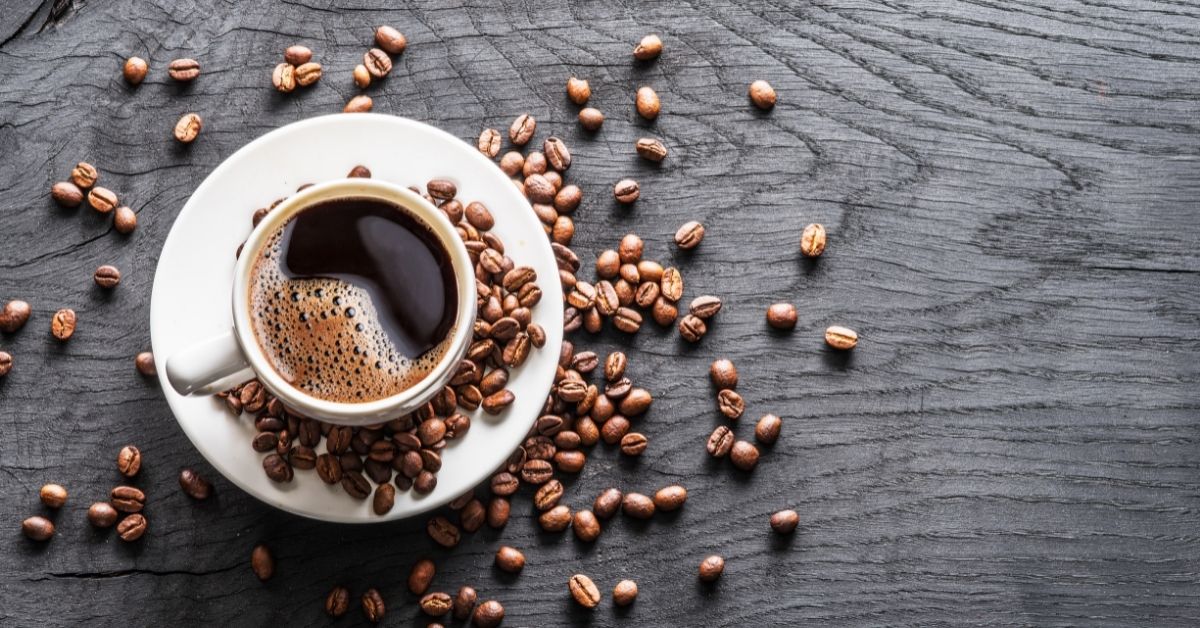Caffeine
Do you know the different effects of caffeine? 80% of the population consumes some type of caffeine, in the US it’s at about 90%.
Caffeine is a natural stimulant most commonly found in tea, coffee, and cacao plants.
It works by stimulating the brain and central nervous system, helping you stay alert and prevent the onset of tiredness.
Caffeine vs Adenosine
To understand the function of caffeine one has to grasp the concept of another neurotransmitter called adenosine.
Most people initially drink caffeine in the form of a beverage. It’s absorbed in the small intestines within an hour and becomes available throughout the blood and most parts of the body, including your brain. The mean half-life of caffeine is about 5 hrs.
As it starts entering your brain, it starts competing with adenosine.
How Adenosine Makes You Feel Sleepy
There are many different receptors in your brain, different ones have different effects. The one we’re interested in is the A1 receptor. Adenosine locks with the A1 receptor, it promotes muscle relaxation and sleepiness, which is why people get tired as the day progresses.
Furthermore, adenosine can bind to the A2A receptor. This binding interferes with the release of mood-improving neurotransmitters, such as dopamine. Adenosine itself is produced primarily from physical work and intensive brain use. That is why over the course of the day your body accumulates adenosine.
The caffeine in your brain is competing with adenosine and preventing it from binding to A1 receptors. This is why it promotes wakefulness.
Caffeine doesn’t actually lock in with the A1 receptor. It’s more like something that gets in the way and occupies the lock, rather than actually unlocking it.
It similarly gets in the way of the A2A receptor, which can help promote the release of dopamine and glutamate, making you feel good after a cup of coffee.
Before Caffeine
When you first wake up, your body has metabolized away the adenosine molecules. You’re a bit groggy, but you’re waking up.
Effects of Caffeine
- Stimulates your central nervous system, which can make you feel more awake and give you a boost of energy
- Is a diuretic, meaning that it helps your body get rid of extra salt and water by urinating more
- Increases the release of acid in your stomach, sometimes leading to an upset stomach or heartburn
- May interfere with the absorption of calcium in the body
How much Caffeine
- 1 cup of coffee = 100 mg
- 1 cup of tea = 50 mg
- 1 can/ 12 fl oz red bull = 112 mg
- 1 can/ 16fl oz monster = 160 mg
- 1can/ 16 fl oz bang = 300 mg
Interesting Studies
- This study investigated the within‐person relationship between caffeine intake and sleep duration at home.
- 377 participants (aged 35–85 years) completed a 7‐day diary study [1].
- Results revealed a significant effect of sleep duration on the change tendency of caffeine use: a shorter sleep duration predicted a stronger tendency to consume caffeine, and this phenomenon was only found in middle-aged adults (aged 35–55 years) not in older adults (aged 55+).
- This study measured the effects of 0, 12.5, 25, 50, and 100 mg caffeine on cognitive performance, mood, and thirst in adults with low and moderate to high habitual caffeine intakes [2].
- All doses of caffeine significantly affected cognitive performance, and the dose-response relationships for these effects were rather flat.
- The effects on performance were more marked in individuals with a higher level of habitual caffeine intake, whereas caffeine increased thirst only in low caffeine consumers.
- Conclusions: After overnight caffeine abstinence, caffeine can significantly affect cognitive performance, mood, and thirst at doses within and even lower than the range of amounts of caffeine contained in a single serving of popular caffeine-containing drinks. Regular caffeine consumers appear to show substantial tolerance to the thirst-increasing but not to the performance and mood effects of caffeine.
- A group of 1875 healthy adults, stratified for age (range 24 – 81 years), sex, and general ability, were screened for the habitual intake of coffee and tea and took part in extensive cognitive testing.
- Multiple regression analysis with control for age, sex, socio‐demographic variables, and substance use showed that habitual caffeine consumption was significantly related to better long‐term memory performance and faster locomotor speed.
- No relationships were found between habitual caffeine consumption and short-term memory, information processing, planning, and attention as measured with the Stroop Test. Moreover, no difference in sensitivity to caffeine intake between different age groups was found, suggesting that caffeine intake did not counteract age-related cognitive decline [3].

